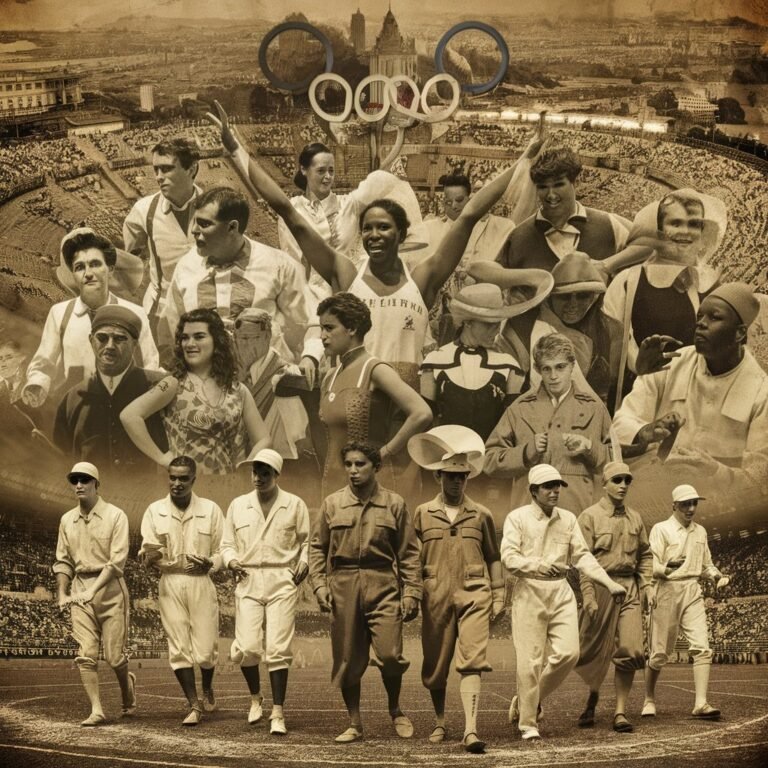The Summer Olympics is one of the greatest sporting events in human history, bringing together athletes, nations, and cultures from around the globe to celebrate excellence, competition, and unity. Held every four years, the Summer Olympic Games have grown from a modest event in Athens in 1896 to a massive international spectacle watched by billions of viewers worldwide. Beyond the competition, the Summer Olympics symbolize peace, friendship, and the shared human spirit of achievement. In this article, we will explore the history of the Summer Olympics, the sports featured in the Games, the impact on host countries, and the role of the Olympics in modern culture.
History of the Summer Olympics
The history of the Summer Olympic Games dates back to ancient Greece, where the first recorded Olympics took place in Olympia in 776 BC. These early competitions were held in honor of Zeus and featured events such as running, wrestling, and discus throwing. After centuries of dormancy, the modern Olympic Games were revived in 1896 by Baron Pierre de Coubertin, who envisioned an international sporting festival that could unite nations. The first modern Summer Olympics in Athens had just 14 participating nations, but it laid the foundation for a tradition that has now lasted more than a century. Over time, the Olympics expanded, introducing new sports, improving organization, and becoming a global stage where history is made.
Sports in the Summer Olympics
The Summer Olympics sports lineup has grown significantly since its beginnings. Today, the Games feature more than 30 sports, including athletics, swimming, gymnastics, basketball, and football. Recent additions like skateboarding, surfing, and sport climbing have attracted younger audiences, making the event more dynamic and inclusive. Each sport represents not only competition but also cultural diversity, as athletes bring their unique backgrounds and traditions to the global stage. This variety ensures that the Summer Olympics remain relevant across generations, continuously evolving to reflect global interests in sports.
Hosting the Summer Olympics – Opportunities and Challenges
Hosting the Summer Olympic Games is both an honor and a challenge for any nation. On one hand, it provides immense global exposure, boosts tourism, and inspires infrastructure development. Cities like Tokyo, London, and Beijing have seen their international profiles rise significantly after hosting. On the other hand, the costs of organizing the Olympics can be staggering, with billions spent on stadiums, transportation, and security. Despite these challenges, the long-term cultural and economic benefits often outweigh the difficulties, as the Summer Olympics leave behind legacies of unity, pride, and improved infrastructure.
The Summer Olympics and Global Unity
One of the most powerful aspects of the Summer Olympics is its ability to foster unity among nations. Despite political tensions or cultural differences, the Games provide a neutral platform where athletes compete with respect and sportsmanship. Memorable moments, such as the 1992 Barcelona Games where athletes from around the world celebrated diversity, highlight how the Olympics transcend competition to promote peace and cooperation. The symbolism of the Olympic flame traveling across continents also serves as a reminder of the universal values of friendship and solidarity.
Memorable Moments in Summer Olympics History
Throughout history, the Summer Olympics has given the world unforgettable moments. From Jesse Owens’ triumph in Berlin 1936, which challenged racial discrimination, to Usain Bolt’s record-breaking sprints in Beijing and London, the Games showcase human excellence at its highest level. Athletes like Michael Phelps, Simone Biles, and Carl Lewis have become legends through their Olympic performances. These moments not only inspire future generations but also remind us of the incredible achievements possible when dedication, passion, and talent combine on the global stage.
The Future of the Summer Olympics
The future of the Summer Olympic Games lies in balancing tradition with innovation. As the world evolves, the International Olympic Committee (IOC) continues to adapt the Games by adding new sports, promoting sustainability, and using technology to enhance the viewing experience. The inclusion of esports is even being discussed, highlighting how the Olympics may expand to appeal to digital generations. Regardless of the changes, the Summer Olympics will remain a symbol of global unity, inspiring athletes and audiences for decades to come.
Conclusion
In conclusion, the Summer Olympics is more than just a sporting event—it is a global celebration of human strength, resilience, and cooperation. From its ancient roots in Greece to its modern status as the world’s largest athletic festival, the Games have continuously evolved while holding onto the values of excellence, respect, and unity. With every edition, the Summer Olympics inspire new generations, strengthen international bonds, and leave a legacy that transcends sports. As the world looks forward to future editions, one thing remains certain: the Summer Olympics will continue to represent the very best of humanity.
FAQ About the Summer Olympics
Q1: When did the first modern Summer Olympics take place?
The first modern Summer Olympics took place in Athens, Greece, in 1896.
Q2: How often are the Summer Olympics held?
The Summer Olympics are held every four years, alternating with the Winter Olympics.
Q3: How many sports are in the Summer Olympics?
Currently, the Summer Olympics feature more than 30 sports, including both traditional and newly added disciplines.
Q4: What is the importance of the Summer Olympics?
The Summer Olympics promote global unity, cultural diversity, and athletic excellence while inspiring millions worldwide.
Q5: Who are some famous athletes from the Summer Olympics?
Notable athletes include Usain Bolt, Michael Phelps, Simone Biles, and Jesse Owens, among many others.
